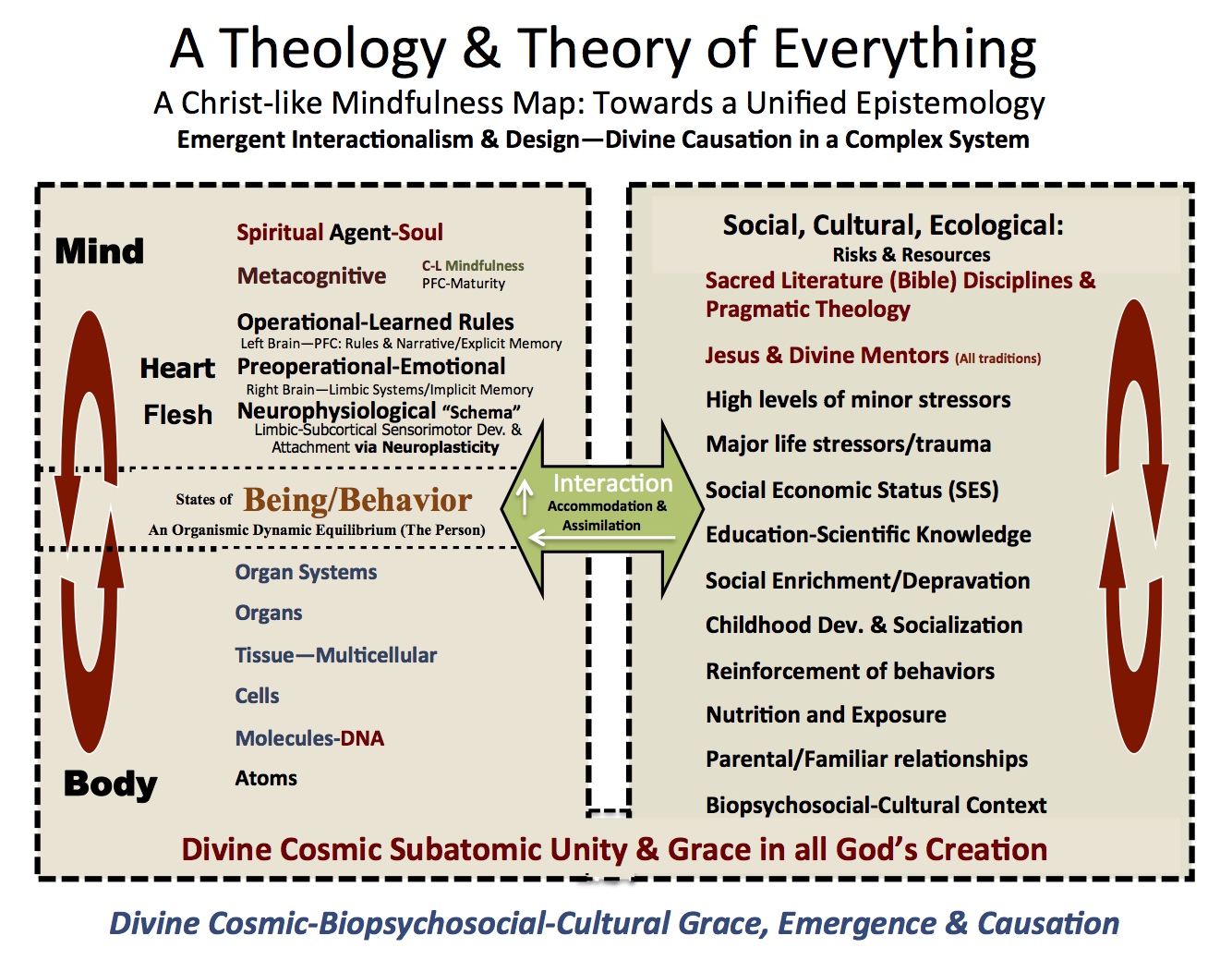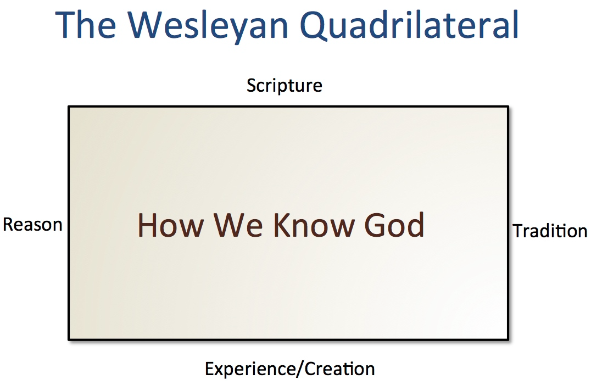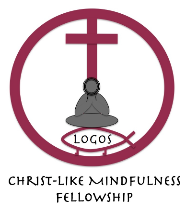
8. Historical, Objective/Academic, Scientific examination of creation, sacred scriptures, and human phenomenon does not diminish the reality of Divine Encounter & Experience. Scientific study can increase clarity and insight regarding how God does things in and through creation and human biopsychosocial-cultural development. We need not fear the error and/or “delusion” of radical reductionism, because post modern organic (brain based) epistemology (the philosophy of how we or our brain’s know things) provides the alternative of Micro-Macro Causation within Emergent Interactionalism.Divine Essence is an absolute uncertainity in our universe of Emergent Complexity out of Chaos. In other words, God can not be proven or disproven. God's existance is statistically a 50% chance (Amir Aczel, Why Science Does Not Disprove God). Thus we are free to accept or reject in our ignorance or intelligence that the universe has a Divine Essence or not. If the existence of God cannot be absolutely determined scientifically, historically, or philosophically, then living with the reality of God becomes a process that primarily involves our collective prefrontal cortex (PFC)-limbic-right brain systems of trust and faith. Our left brain narratives (our theologies) are important for our ability to communicate within our communities of faith, and allow us to explore our common origin and hopefully facilitate our divine sanctification. Our sacred narrative will also help guide us in our spiritual (PFC-limbic-right brain systems of trust and faith) quests to know God, and to transform our individual and communal biopsychosocial-cultural experience of God
"We know in part..." God is love. God is Spirit. God is mystery.
1) Loving intimacy with God is our unifying theological paradigm.
2) Christ-like Mindfulness is a lifestyle sanctification practice or spiritual discipline, which promotes Christ-Like growth and maturity in and through the Christian historical processes of purification, illumination, Christ-like unification with God—see “Orthopraxy,” "Brain Based" & "Spiritual Direction" Pages.
3) In faith we trust that “God Is” the ground (sustaining unifying force) of existence/being; The Spirit of God is the source & destiny (the omega principle/point) of emergent life, and Jesus is the way, the truth and the life (Paradigm) of love. One God, one mystery, and multiple biopsychosocial-cultural human experiences and processes of sanctification in the one God. See: A Theology & Theory of Everything below.
9. PostModernism states with the Apostle Paul that all knowing is experiential and interpersonal. There may be cosmic absolutes, but our knowledge is never absolute, it’s always tentative and subject to error. I Cor 13: 8-13. “We know in part…love never fails, …” Paul emphasizes faith, hope and love, but the “greatest is love.” Absolute truth is the “fullness of God who dwelt in Jesus…and through him, (God) reconciled to Him ALL things,” Colossians 1:20. We have faith in God’s universal grace and love for ALL creation and ALL humans, and His grace for facilitating personal transformation via the Spirit & scripture, which is inspired and authoritative for the training of all the saints…(2Tim 3:16-17).”




